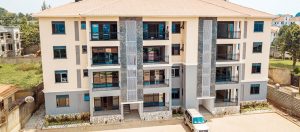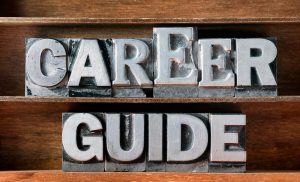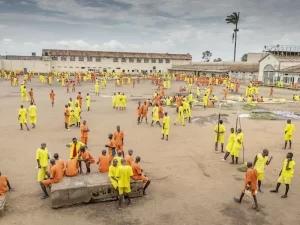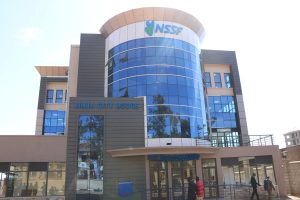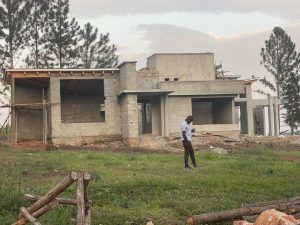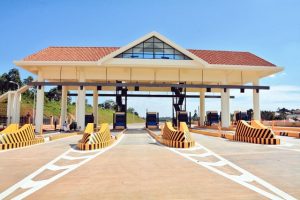
#OutToLunch Should we be worried about ChatGPT?
Should we be worried about ChatGPT? By Denis Jjuuko At the turn of the new millennium, talk started about the end of the world. Computers, as intelligent as they had been billed for decades, would fail a simple arithmetic. We were told computers wouldn’t be able to change from 1999 to the year 2000. Everyone was worried. Those who had money in banks were scared. Their money would become obsolete. Those who are religious said it would be the end of the world. Jesus was coming back, finally! The panic towards the new year 2000 was surreal. Everyone wanted to do something before the end of time — before the world comes to an end due to failures in computers to recognize a year that starts with the number 2. Government agencies quickly set up Y2K Taskforces to ensure everything was compliant. Y2K stood for Year 2000. On 31 December 1999, everyone waited with abated breath the end of the world. Nothing happened. Computers or whoever writes the codes on which they run simply turned one into two, I guess. The world disruption that had been predicted didn’t happen. Twenty-three years later, the world or at least some people are panicking again. Apparently, artificial intelligence (AI) technologies originally developed in the 1960s have matured so much that humans will no longer be needed. Jobs will no longer be there. AI will do everything a human being can do. This has been a result of some early successes of ChatGPT, an artificial intelligence designed by OpenAI, an American company that mimics human being. ChatGPT, which stands for Generative Pre-Trained Transformer can write letters, essays, poems, software code, academic papers, and recipes needed to prepare Luwombo or Katogo and such other things at the level similar to human beings but based on what human beings have been able to write from time to time and stored on the internet. To be honest, this isn’t entirely new. If for example you own an iPhone and you let kids once in a while play with it, you know how they love asking Siri questions and the answers it gives them. ChatGPT isn’t very different from Siri (even though more powerful with ability to write where Siri is voice based). Since many of the people reading this have access to Siri or Amazon’s Alexa, have they yet replaced you yet at work? Let us put AI or robotics in context in relation to other technologies of the past. Banks like UCB employed many people whose jobs were to count and verify money. It was a tedious task with many errors leading to losses. This army of money checkers or counters were replaced by a machine you see today that counts money faster and more accurately. However, this money counting machine that your bank uses today doesn’t have the ability to feed itself with the different money denominations even though it can detect that a Shs20,000 note has been included among the Shs50,000 notes and will reject it. The human cashier must fill it with the right denominations for it to count. And banks still employ money verifiers today known as vote custodians. ChatGPT and all the other bots being heralded as a replacement of humans will still, like the money counting machines, be fed by humans. Without humans, artificial intelligence won’t be able to work. But will artificial intelligence replace some jobs? Lawyers, journalists, song writers, receptionists, proof readers, accountants, couriers, customer service executives and such other jobs have been listed as the first ones that AI will replace. Some have even mentioned factory workers where robots have been in use for decades now. The truth is that some jobs which don’t evolve will be replaced but not all of them. Lawyers or journalists who don’t work with AI may be replaced. Money checkers and counters who didn’t evolve to new realities were replaced. Those who pivoted to other work within the banking sector remain in jobs. When desktop computers replaced typewriters, secretaries and personal assistants who didn’t evolve to new realities were replaced. Artificial intelligence or robotics won’t replace humans, people just need to work with the new reality as secretaries did. Already ChatGPT has shown that it doesn’t have a correct answer for everything. Asked about who was the first woman president of the USA, ChatGPT named Hillary Rodham Clinton and went ahead to type her profile. The USA has never had a woman president. That limitation shows that human beings will always have a role. Those in countries like Uganda still have lots of opportunities with or without AI. AI will make our world better no doubt but it won’t contextualize why Philly Lutaaya is heads and shoulders above of Kenzo even when Kenzo’s bubblegum music has more views on YouTube. However, whoever is writing the story will benefit from AI while writing it. The writer is a communication and visibility consultant. djjuuko@gmail.com internet

